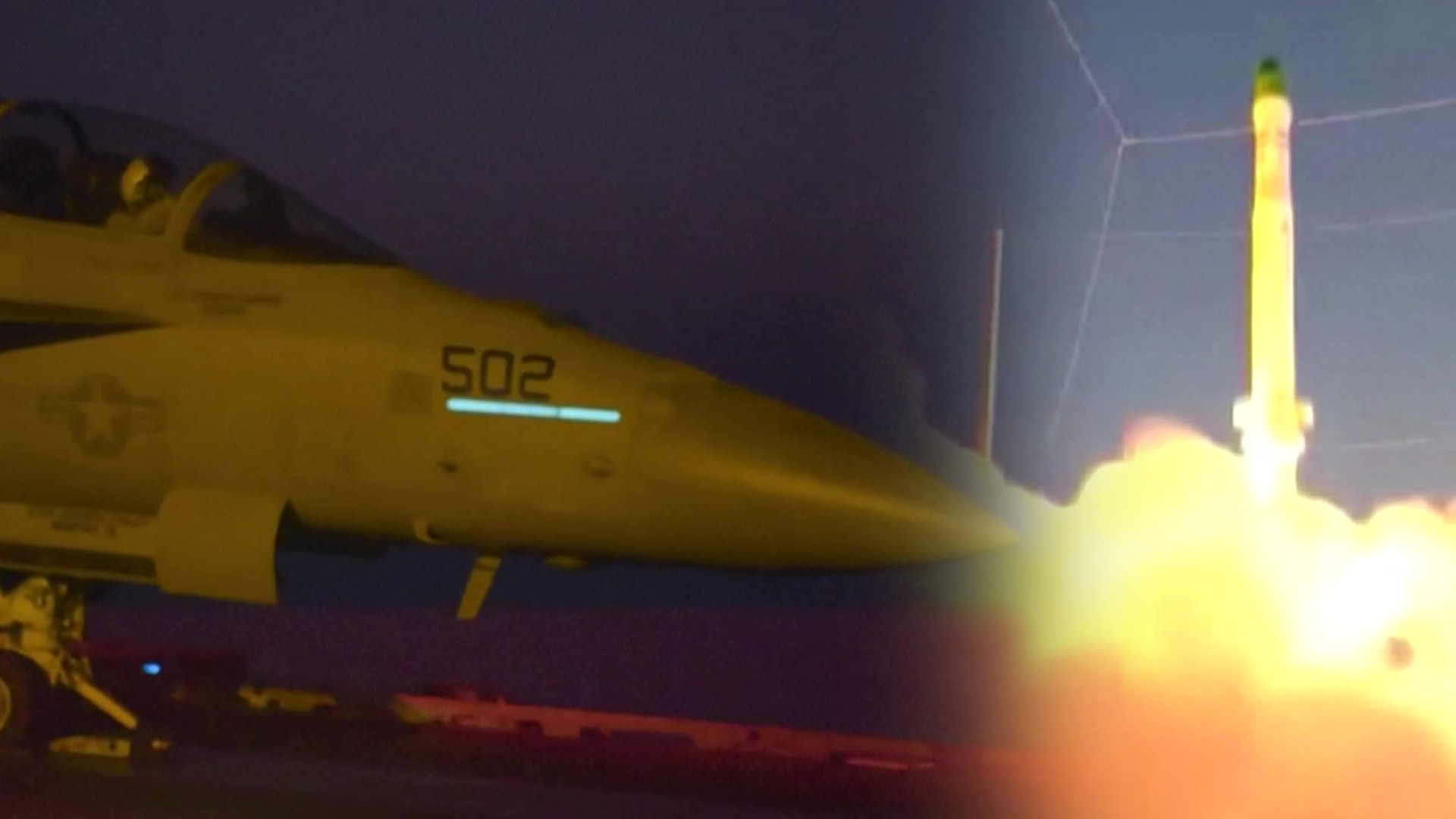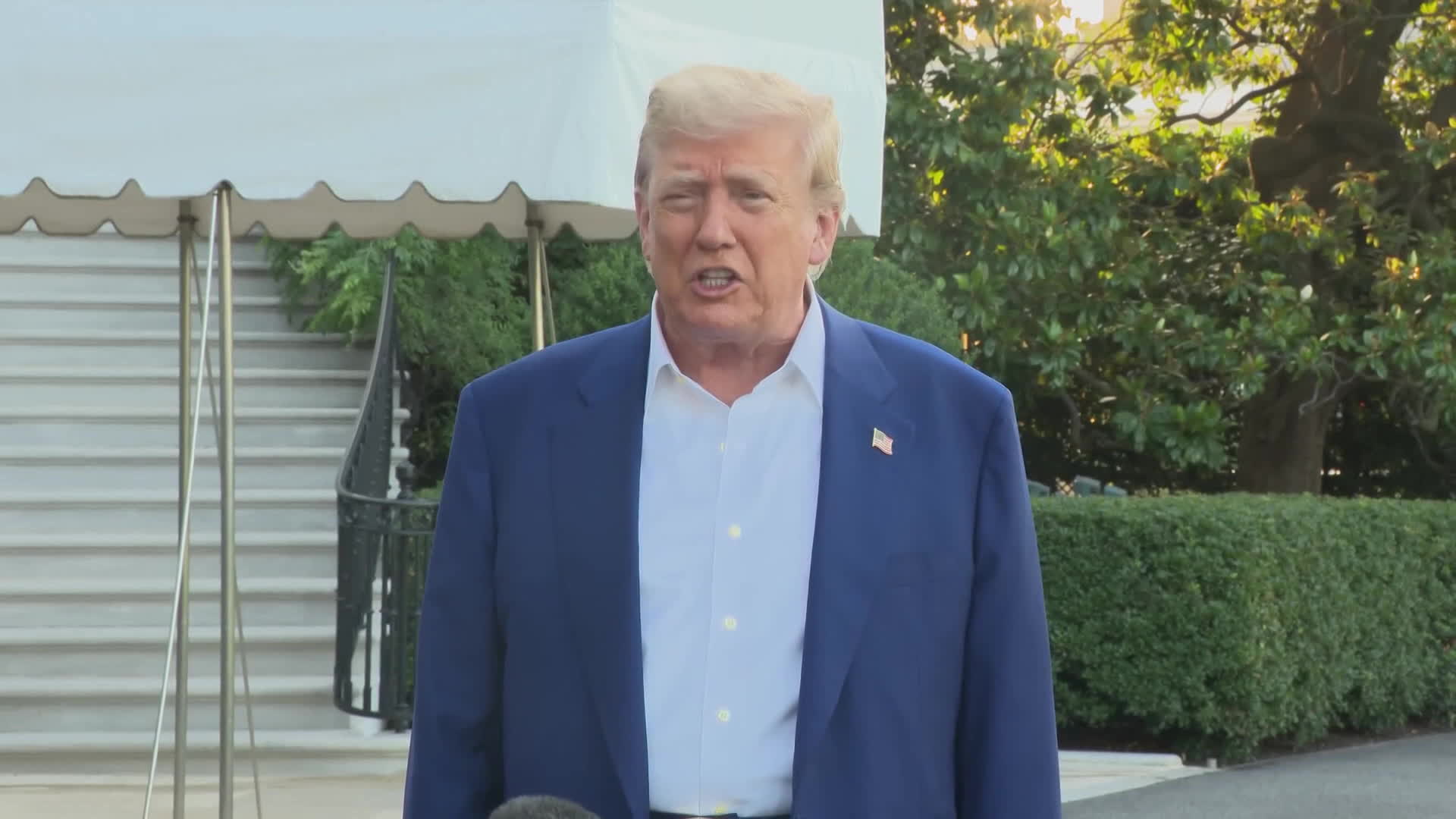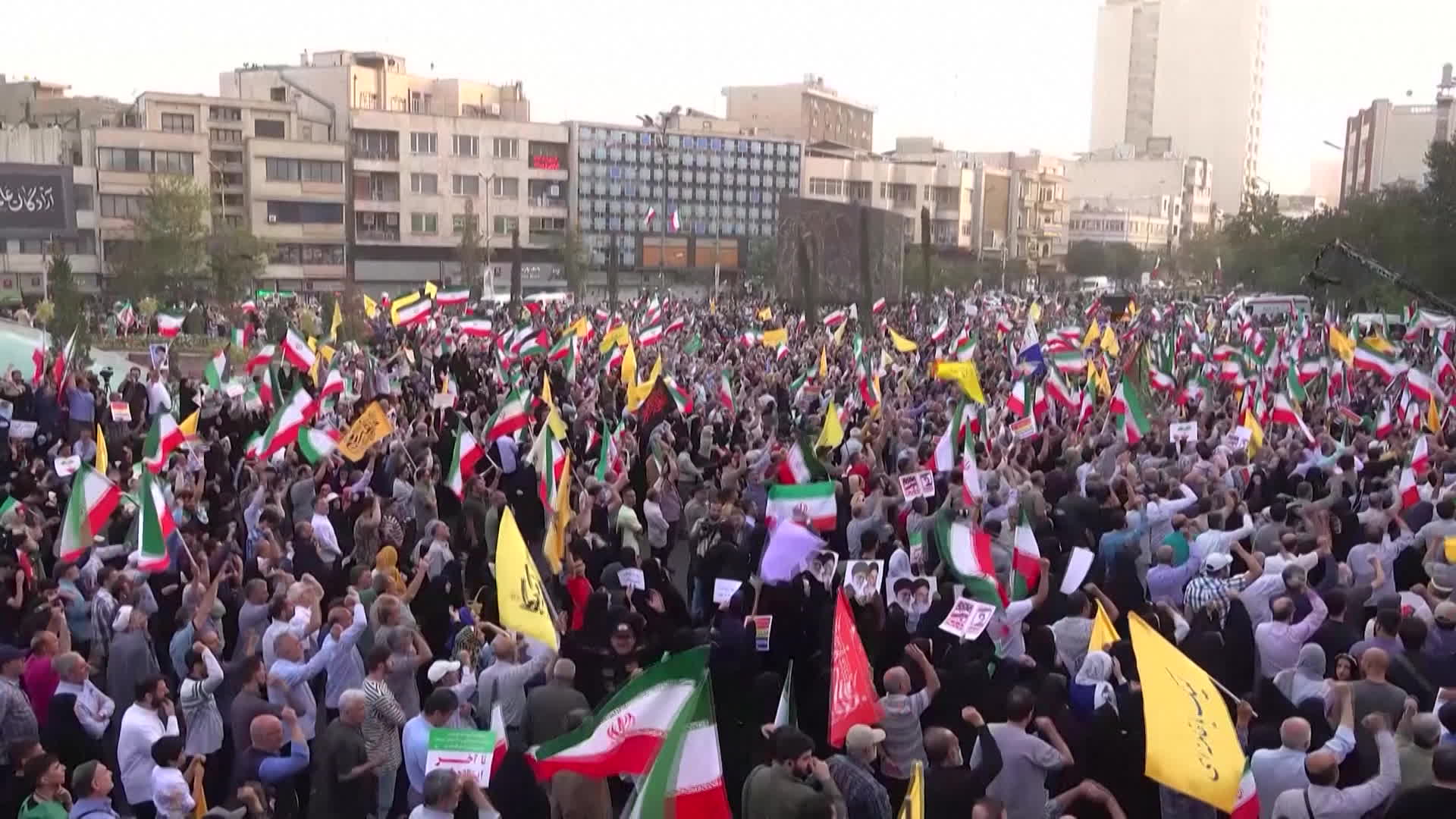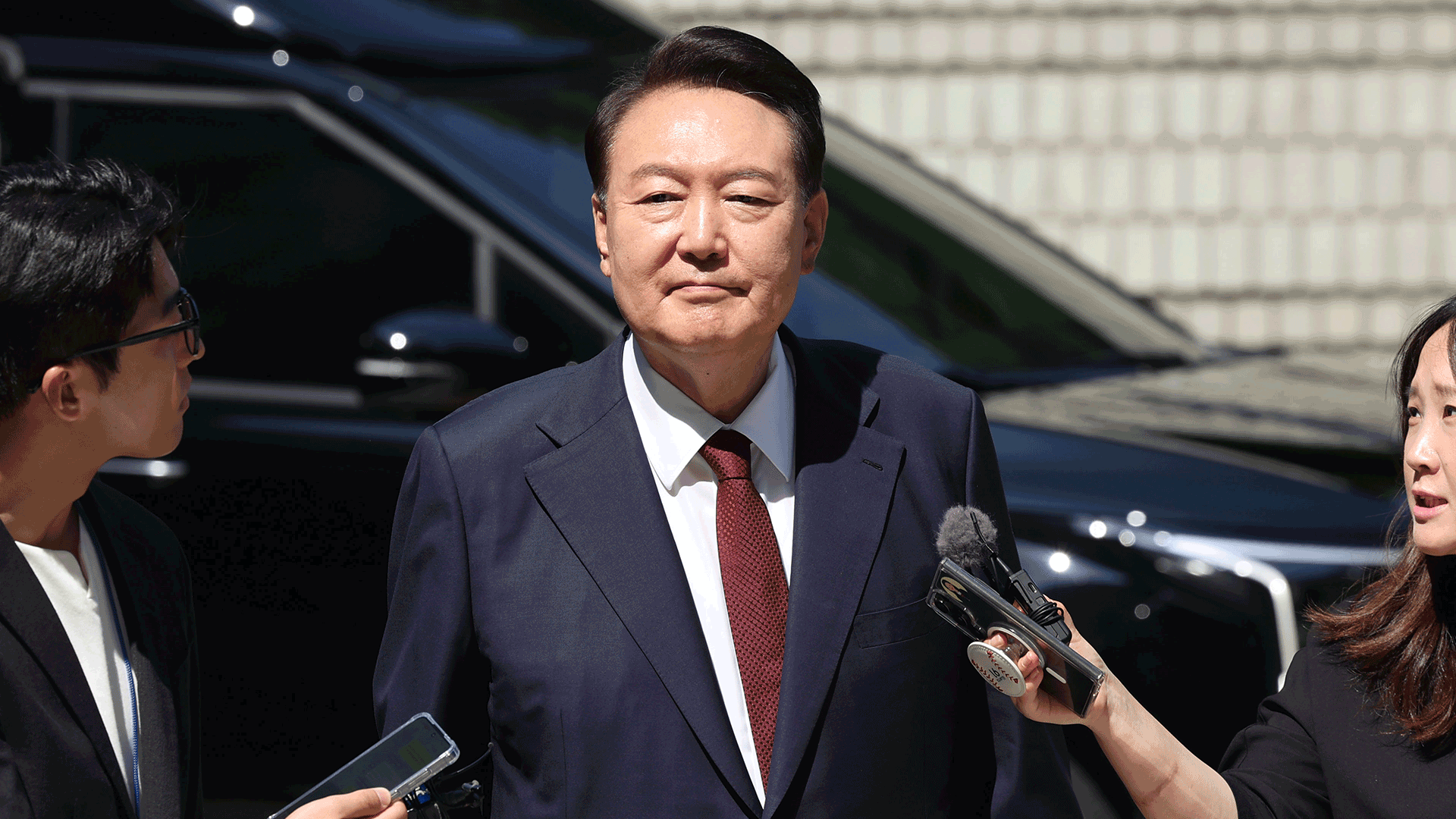[Anchor]
Currently, the most important question is what actions Iran will take in the future.
Iran has hinted at verbal retaliation against the United States and has carried out missile attacks against Israel.
This is Kim Gae-hyung reporting.
[Report]
The Iranian Foreign Minister strongly criticized the United States for bombing peaceful nuclear facilities.
He stated that the U.S. attack is absurd and that there will be eternal consequences, publicly announcing retaliation.
[Abbas Araghchi/Iranian Foreign Minister: "The Islamic Republic of Iran continue to defend Iran's territory, sovereignty, security, and people with all means necessary."]
Iran has also made it clear that it will not halt its nuclear activities.
An Iranian official claimed that they had moved nuclear facilities in anticipation of U.S. airstrikes, thus avoiding irreparable damage.
This contradicts the U.S. claim that it completely destroyed the nuclear facilities.
As the U.S. directly intervened in the conflict with Israel, Iran responded first with missile attacks against Israel.
They launched 40 missiles towards Tel Aviv and Jerusalem, with some missiles penetrating the air defense system, injuring nearly 100 people.
[Iman Tajik/Iranian Operations Spokesman: "(The new multi-warhead missile) has significantly improved accuracy, destructive power, and operational effectiveness by applying new tactics."]
Israel did not remain passive.
They initiated airstrikes against military targets in western Iran.
Israeli Prime Minister Netanyahu praised President Trump for the bold decision to strike Iran's nuclear facilities, stating it would change history.
[Anchor]
We connect to Kim Gae-hyung on the ground.
Kim, President Trump has warned Iran to surrender, but it seems Iran has no intention of doing so.
What can we expect?
[Reporter]
In the short term, it seems that Iran has no other option but to retaliate strongly against the United States.
Retaliation after being attacked is a fundamental aspect of Middle Eastern conflicts.
Earlier, on June 18, Supreme Leader Khamenei warned the public that U.S. intervention would lead to irreversible consequences.
Iran's response will follow that stance.
If Supreme Leader Khamenei chooses negotiation without retaliation against the U.S., he is likely to be shunned by hardline supporters within Iran and foreign proxy forces.
Negotiation may come later, but only after Iran launches a retaliation that gives it the justification to say the U.S. paid a price for its actions.
[Anchor]
That justification seems key—what would concrete retaliation look like?
[Reporter]
U.S. military bases or facilities in the Middle East will likely be primary targets.
Iranian state media has even stated that "all U.S. citizens or military personnel in the Middle East are now legitimate targets."
There are a total of 19 U.S. military bases in the Middle East, with approximately 40,000 troops.
There are also embassies in several Middle Eastern countries, excluding Syria and Yemen.
U.S. vessels passing through the Middle East could also become targets.
Iran could potentially block the Strait of Hormuz.
Iran's proxy forces, such as the Yemeni Houthi rebels or Hezbollah in Lebanon, could also join in the retaliation.
President Trump has warned that if Iran retaliates, he will respond with even stronger attacks.
For now, the risk of the conflict escalating into a broader Middle East war is rising.
This has been reported from Dubai.
Currently, the most important question is what actions Iran will take in the future.
Iran has hinted at verbal retaliation against the United States and has carried out missile attacks against Israel.
This is Kim Gae-hyung reporting.
[Report]
The Iranian Foreign Minister strongly criticized the United States for bombing peaceful nuclear facilities.
He stated that the U.S. attack is absurd and that there will be eternal consequences, publicly announcing retaliation.
[Abbas Araghchi/Iranian Foreign Minister: "The Islamic Republic of Iran continue to defend Iran's territory, sovereignty, security, and people with all means necessary."]
Iran has also made it clear that it will not halt its nuclear activities.
An Iranian official claimed that they had moved nuclear facilities in anticipation of U.S. airstrikes, thus avoiding irreparable damage.
This contradicts the U.S. claim that it completely destroyed the nuclear facilities.
As the U.S. directly intervened in the conflict with Israel, Iran responded first with missile attacks against Israel.
They launched 40 missiles towards Tel Aviv and Jerusalem, with some missiles penetrating the air defense system, injuring nearly 100 people.
[Iman Tajik/Iranian Operations Spokesman: "(The new multi-warhead missile) has significantly improved accuracy, destructive power, and operational effectiveness by applying new tactics."]
Israel did not remain passive.
They initiated airstrikes against military targets in western Iran.
Israeli Prime Minister Netanyahu praised President Trump for the bold decision to strike Iran's nuclear facilities, stating it would change history.
[Anchor]
We connect to Kim Gae-hyung on the ground.
Kim, President Trump has warned Iran to surrender, but it seems Iran has no intention of doing so.
What can we expect?
[Reporter]
In the short term, it seems that Iran has no other option but to retaliate strongly against the United States.
Retaliation after being attacked is a fundamental aspect of Middle Eastern conflicts.
Earlier, on June 18, Supreme Leader Khamenei warned the public that U.S. intervention would lead to irreversible consequences.
Iran's response will follow that stance.
If Supreme Leader Khamenei chooses negotiation without retaliation against the U.S., he is likely to be shunned by hardline supporters within Iran and foreign proxy forces.
Negotiation may come later, but only after Iran launches a retaliation that gives it the justification to say the U.S. paid a price for its actions.
[Anchor]
That justification seems key—what would concrete retaliation look like?
[Reporter]
U.S. military bases or facilities in the Middle East will likely be primary targets.
Iranian state media has even stated that "all U.S. citizens or military personnel in the Middle East are now legitimate targets."
There are a total of 19 U.S. military bases in the Middle East, with approximately 40,000 troops.
There are also embassies in several Middle Eastern countries, excluding Syria and Yemen.
U.S. vessels passing through the Middle East could also become targets.
Iran could potentially block the Strait of Hormuz.
Iran's proxy forces, such as the Yemeni Houthi rebels or Hezbollah in Lebanon, could also join in the retaliation.
President Trump has warned that if Iran retaliates, he will respond with even stronger attacks.
For now, the risk of the conflict escalating into a broader Middle East war is rising.
This has been reported from Dubai.
■ 제보하기
▷ 카카오톡 : 'KBS제보' 검색, 채널 추가
▷ 전화 : 02-781-1234, 4444
▷ 이메일 : kbs1234@kbs.co.kr
▷ 유튜브, 네이버, 카카오에서도 KBS뉴스를 구독해주세요!
- Iran vows retaliation
-
- 입력 2025-06-23 01:04:21

[Anchor]
Currently, the most important question is what actions Iran will take in the future.
Iran has hinted at verbal retaliation against the United States and has carried out missile attacks against Israel.
This is Kim Gae-hyung reporting.
[Report]
The Iranian Foreign Minister strongly criticized the United States for bombing peaceful nuclear facilities.
He stated that the U.S. attack is absurd and that there will be eternal consequences, publicly announcing retaliation.
[Abbas Araghchi/Iranian Foreign Minister: "The Islamic Republic of Iran continue to defend Iran's territory, sovereignty, security, and people with all means necessary."]
Iran has also made it clear that it will not halt its nuclear activities.
An Iranian official claimed that they had moved nuclear facilities in anticipation of U.S. airstrikes, thus avoiding irreparable damage.
This contradicts the U.S. claim that it completely destroyed the nuclear facilities.
As the U.S. directly intervened in the conflict with Israel, Iran responded first with missile attacks against Israel.
They launched 40 missiles towards Tel Aviv and Jerusalem, with some missiles penetrating the air defense system, injuring nearly 100 people.
[Iman Tajik/Iranian Operations Spokesman: "(The new multi-warhead missile) has significantly improved accuracy, destructive power, and operational effectiveness by applying new tactics."]
Israel did not remain passive.
They initiated airstrikes against military targets in western Iran.
Israeli Prime Minister Netanyahu praised President Trump for the bold decision to strike Iran's nuclear facilities, stating it would change history.
[Anchor]
We connect to Kim Gae-hyung on the ground.
Kim, President Trump has warned Iran to surrender, but it seems Iran has no intention of doing so.
What can we expect?
[Reporter]
In the short term, it seems that Iran has no other option but to retaliate strongly against the United States.
Retaliation after being attacked is a fundamental aspect of Middle Eastern conflicts.
Earlier, on June 18, Supreme Leader Khamenei warned the public that U.S. intervention would lead to irreversible consequences.
Iran's response will follow that stance.
If Supreme Leader Khamenei chooses negotiation without retaliation against the U.S., he is likely to be shunned by hardline supporters within Iran and foreign proxy forces.
Negotiation may come later, but only after Iran launches a retaliation that gives it the justification to say the U.S. paid a price for its actions.
[Anchor]
That justification seems key—what would concrete retaliation look like?
[Reporter]
U.S. military bases or facilities in the Middle East will likely be primary targets.
Iranian state media has even stated that "all U.S. citizens or military personnel in the Middle East are now legitimate targets."
There are a total of 19 U.S. military bases in the Middle East, with approximately 40,000 troops.
There are also embassies in several Middle Eastern countries, excluding Syria and Yemen.
U.S. vessels passing through the Middle East could also become targets.
Iran could potentially block the Strait of Hormuz.
Iran's proxy forces, such as the Yemeni Houthi rebels or Hezbollah in Lebanon, could also join in the retaliation.
President Trump has warned that if Iran retaliates, he will respond with even stronger attacks.
For now, the risk of the conflict escalating into a broader Middle East war is rising.
This has been reported from Dubai.
Currently, the most important question is what actions Iran will take in the future.
Iran has hinted at verbal retaliation against the United States and has carried out missile attacks against Israel.
This is Kim Gae-hyung reporting.
[Report]
The Iranian Foreign Minister strongly criticized the United States for bombing peaceful nuclear facilities.
He stated that the U.S. attack is absurd and that there will be eternal consequences, publicly announcing retaliation.
[Abbas Araghchi/Iranian Foreign Minister: "The Islamic Republic of Iran continue to defend Iran's territory, sovereignty, security, and people with all means necessary."]
Iran has also made it clear that it will not halt its nuclear activities.
An Iranian official claimed that they had moved nuclear facilities in anticipation of U.S. airstrikes, thus avoiding irreparable damage.
This contradicts the U.S. claim that it completely destroyed the nuclear facilities.
As the U.S. directly intervened in the conflict with Israel, Iran responded first with missile attacks against Israel.
They launched 40 missiles towards Tel Aviv and Jerusalem, with some missiles penetrating the air defense system, injuring nearly 100 people.
[Iman Tajik/Iranian Operations Spokesman: "(The new multi-warhead missile) has significantly improved accuracy, destructive power, and operational effectiveness by applying new tactics."]
Israel did not remain passive.
They initiated airstrikes against military targets in western Iran.
Israeli Prime Minister Netanyahu praised President Trump for the bold decision to strike Iran's nuclear facilities, stating it would change history.
[Anchor]
We connect to Kim Gae-hyung on the ground.
Kim, President Trump has warned Iran to surrender, but it seems Iran has no intention of doing so.
What can we expect?
[Reporter]
In the short term, it seems that Iran has no other option but to retaliate strongly against the United States.
Retaliation after being attacked is a fundamental aspect of Middle Eastern conflicts.
Earlier, on June 18, Supreme Leader Khamenei warned the public that U.S. intervention would lead to irreversible consequences.
Iran's response will follow that stance.
If Supreme Leader Khamenei chooses negotiation without retaliation against the U.S., he is likely to be shunned by hardline supporters within Iran and foreign proxy forces.
Negotiation may come later, but only after Iran launches a retaliation that gives it the justification to say the U.S. paid a price for its actions.
[Anchor]
That justification seems key—what would concrete retaliation look like?
[Reporter]
U.S. military bases or facilities in the Middle East will likely be primary targets.
Iranian state media has even stated that "all U.S. citizens or military personnel in the Middle East are now legitimate targets."
There are a total of 19 U.S. military bases in the Middle East, with approximately 40,000 troops.
There are also embassies in several Middle Eastern countries, excluding Syria and Yemen.
U.S. vessels passing through the Middle East could also become targets.
Iran could potentially block the Strait of Hormuz.
Iran's proxy forces, such as the Yemeni Houthi rebels or Hezbollah in Lebanon, could also join in the retaliation.
President Trump has warned that if Iran retaliates, he will respond with even stronger attacks.
For now, the risk of the conflict escalating into a broader Middle East war is rising.
This has been reported from Dubai.
-
-

김개형 기자 thenews@kbs.co.kr
김개형 기자의 기사 모음
-
이 기사가 좋으셨다면
-
좋아요
0
-
응원해요
0
-
후속 원해요
0















이 기사에 대한 의견을 남겨주세요.